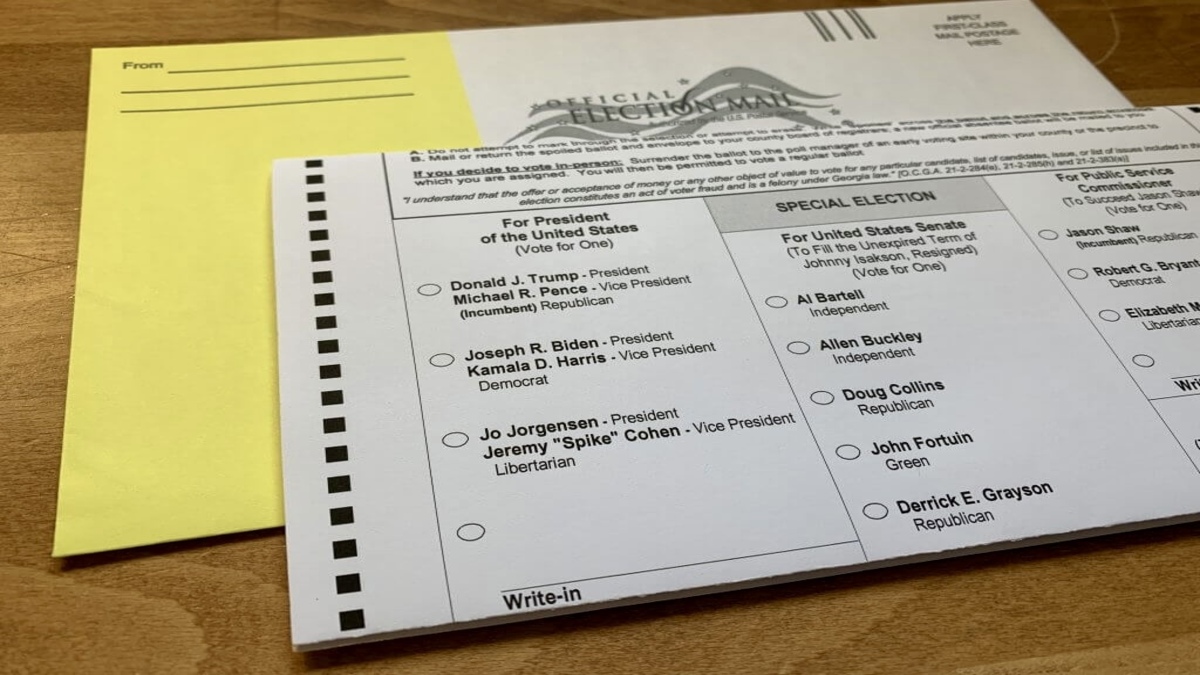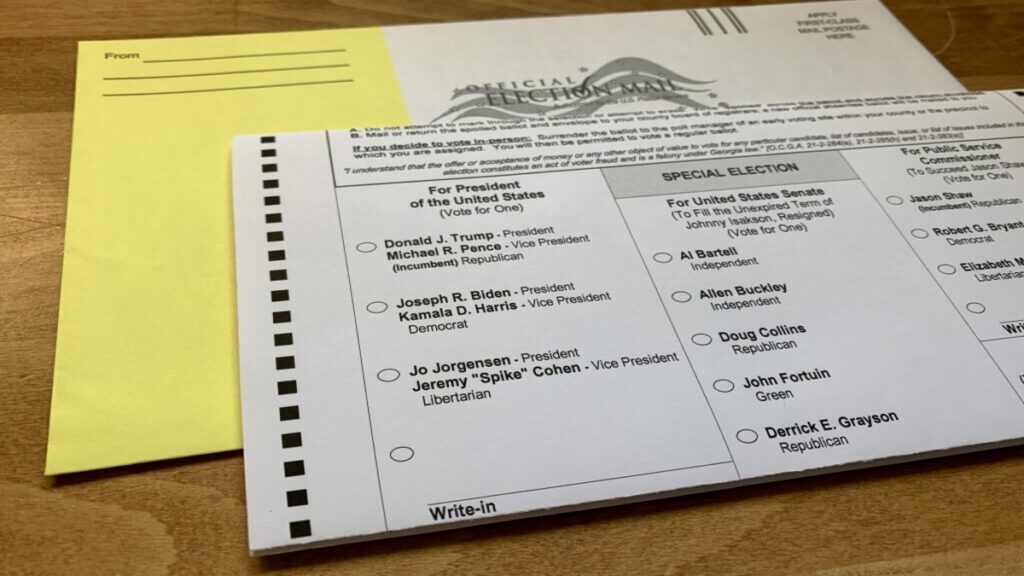
In a significant move toward bolstering election integrity, a Georgia Senate panel has taken steps to phase out the use of QR codes for tallying votes on paper ballots, a practice that has drawn scrutiny from advocates for ballot security.
Chairman of the Senate Ethics Committee, Max Burns, unveiled Senate Bill 189 on Tuesday, aiming to instill greater confidence in the accuracy of election results statewide. The proposed legislation seeks to replace QR codes, currently employed for tabulating votes on paper ballots, with either readable text or a bubble-style mark akin to those used for absentee and provisional ballots.
Burns underscored the bill’s focus on enhancing voter confidence, emphasizing the importance of ensuring trust in the electoral process across all political spectrums. He expressed optimism that the adoption of this measure would assuage concerns and foster a sense of assurance among Georgia voters.
According to Burns, consultations with state election officials have affirmed the feasibility of transitioning away from QR codes without necessitating a comprehensive overhaul of the voting infrastructure. Georgia had acquired Dominion Voting Systems electronic machines in 2019 for $107 million, marking a significant investment in election technology.
ALSO READ: House GOP Subpoenas DA Who Charged Trump in Georgia
QR codes, a form of barcode known for its enhanced scannability and data capacity, have faced criticism for their reliance on encoded, non-human-readable content. Burns stressed the technical feasibility of omitting QR codes and emphasized the Secretary of State’s role in overseeing the implementation of this transition.
The bill’s advancement to the Senate Rules Committee marks a pivotal juncture in its legislative journey, with Lt. Gov. Burt Jones and House Speaker Jon Burns, both Republicans, championing the elimination of QR codes as a top priority for the 2024 legislative session.
POLL — Should Donald J. Trump Be Allowed to Run for Office?
However, challenges loom on the horizon, as evidenced by a recent exchange during a legislative budget committee hearing where GOP Secretary of State Brad Raffensperger faced scrutiny over QR codes. Raffensperger acknowledged the logistical hurdles of implementing such changes ahead of the impending election season, stressing the need for adequate funding to facilitate the transition.
Raffensperger’s tenure has been marred by partisan discord, particularly in the aftermath of the 2020 election, when he rebuffed former President Donald Trump’s baseless claims of election malfeasance. The secretary’s commitment to upholding electoral integrity has sparked tensions within the Republican ranks, underscoring the broader ideological rifts within the party.
ALSO READ: Supreme Court to Decide on Trump’s Election Theft Trial Ahead of 2024 General Elections
Senator Bo Hatchett echoed the sentiments of constituents from his northeast Georgia district, emphasizing the bill’s responsiveness to longstanding voter concerns regarding electronic voting technology.
Georgia’s electoral landscape has been embroiled in legal battles over the security and reliability of its voting infrastructure, with advocates advocating for a transition to hand-marked paper ballots. The ongoing federal lawsuit underscores the urgency of addressing vulnerabilities in Georgia’s voting systems, underscoring the significance of initiatives like Senate Bill 189 in safeguarding the sanctity of the electoral process.
You Might Also Like:
US Air Force Preps for Mega Overhaul to Match China’s Military Build-up
San Francisco Business Owners Say City is Getting Worse for Restaurants Amid Homeless Crisis
Yellen Says 100,000 Firms Have Joined Business Database To Unmask Shell Company Owners
Denver Suburb to Pay Family of Black Girls Handcuffed by Police $1.9 Million in Settlement
Here’s How To Travel on a Budget in 2024

